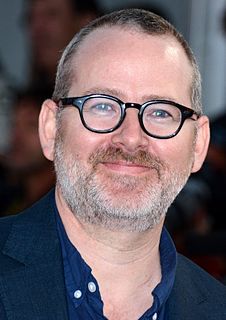A Quote by Virginia Woolf
When you consider things like the stars, our affairs don't seem to matter very much, do they?
Related Quotes
What we think is, in the adult person, very much a matter of what we allow ourselves to think, and what we feel is very much a matter of what we allow ourselves to feel. Moreover, what we think is very much a matter of what we wish and seek to think, and what we feel is very much a matter of what we wish and seek to feel. In short, the condition of our mind is very much a matter of the direction in which our will is set.
Most things are forgotten over time. Even the war itself, the life-and-death struggle people went through, is now like something from the distant past. We're so caught up in our everyday lives that events of the past, like ancient stars that have burned out, are no longer in orbit around our minds. There are just too many things we have to think about every day, too many new things we have to learn. New styles, new information, new technology, new terminology ... But still, no matter how much time passes, no matter what takes place in the interim, there are some things we can never assign to oblivion, memories we can never rub away. They remain with us forever, like a touchstone. And for me, what happened in the woods that day is one of these.
Rather than seeing ourselves as insignificant specks in the immensity of the cosmos, we can consider that immensity an indicator of our worth. It seems the Creator invested a great deal-a universe of 50 billion trillion stars, plus a hundred times more matter, all fine-tuned to mind-boggling precision-for us. If not for the strength and abundance of evidence in support of that notion, it would seem the height of arrogance. Humility demands that we take a deeper and wider look at that evidence.
[Wise men] have tried to understand our state of being, by grasping at its stars, or its arts, or its economics. But, if there is an underlying oneness of all things, it does not matter where we begin, whether with stars, or laws of supply and demand, or frogs, or Napoleon Bonaparte. One measures a circle, beginning anywhere.
When John was with me, it was total commitment. Whatever he did outside our relationship didn't seem very important. We were together such a lot of the time that whatever other affairs he had once we met couldn't have amounted to much because I was with him most of the time. He kept me in Liverpool as late as I dared stay.
His gaze wandered from the windows to the stars, as if he would have read in them something that was hidden from him. Many of us would, if we could; but none of us so much as know our letters in the stars yet - or seem likely to do it, in this state of existence - and few languages can be read until their alphabets are mastered.
And since we don’t just forget things because they don’t matter but also forget things because they matter too much because each of us remembers and forgets in a pattern whose labyrinthine windings are an identification mark no less distinctive than a fingerprintit’s no wonder that the shards of reality one person will cherish as a biography can seem to someone else who, say, happened to have eaten some ten thousand dinners at the very same kitchen table, to be a willful excursion into mythomania
If you look at the works psychologists have done about individual reports of wellbeing, what happens is that if you're poor, you are not happy. But once you achieve a certain level of material satisfaction then income has very little correlation with people's reported states of happiness, things like climate matter more, things like the culture of the country in which you're raised matter more and so the things really, let's face it, like individual temperament matter more than these things.
You couldn't be here if stars hadn't exploded, because the elements - the carbon, nitrogen, oxygen, iron, all the things that matter for evolution - weren't created at the beginning of time. They were created in the nuclear furnaces of stars, and the only way they could get into your body is if the stars were kind enough to explode. So, forget Jesus. The stars died so that you could be here today.
The public brings our buildings to life, and we try to choreograph a lot of things, but our most successful work functions in unanticipated ways. Like the Blur Building. When little kids got in there, they cried or laughed or ran around. And no matter how much theory we put on top of it, it didn't matter: it worked.

































